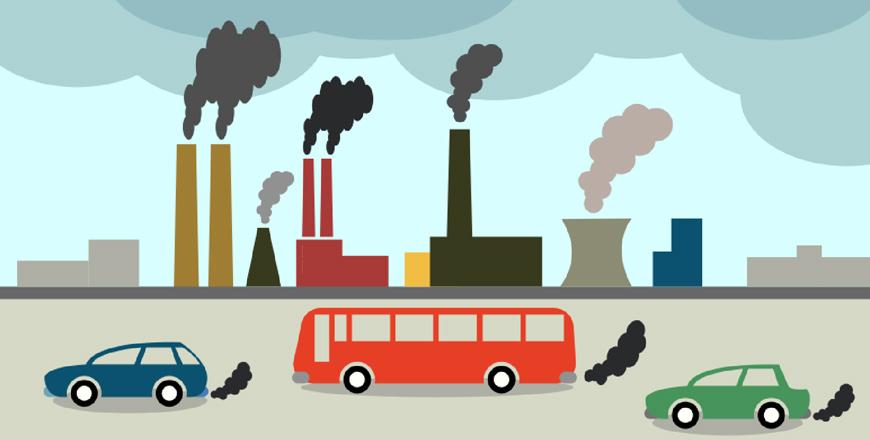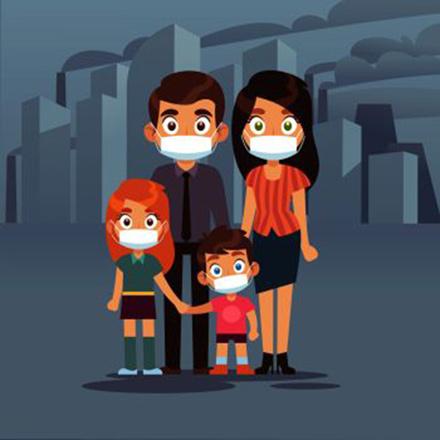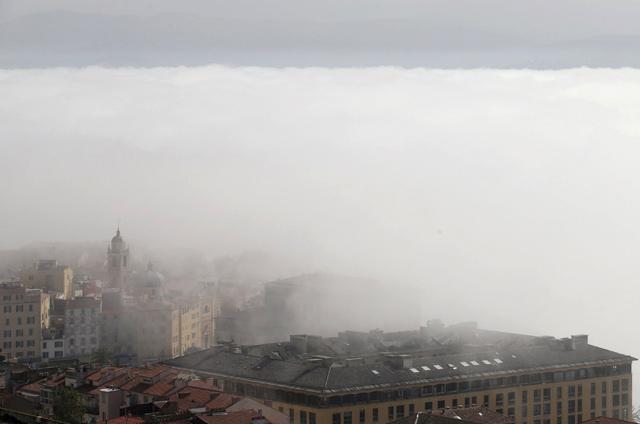You are here
UN celebrates first International Day of Clean Air for Blue Skies
By Maram Kayed - Sep 09,2020 - Last updated at Sep 09,2020
AMMAN — The United Nations Environment Programme (UNEP) celebrated its first “International Day of Clean Air for Blue Skies” on September 7 to shed light on air pollution which claims lives of more than seven million people each year. Jordan joined the world in marking this day with its theme for this year being “Clean Air for All”.
“This is an important step to highlight the need for serious measures that combat air pollution, which strengthens government efforts to mitigate the effects of climate change and improve air quality,” said President of the Dibbin Society for Environmental Development Hala Murad.
The UNEP considered air pollution the “greatest environmental threat to health,” while simultaneously indicating that it was preventable.
“We have solutions and technology. To improve air quality, we need everyone on board — from individuals to private companies to governments,” the UN body said in a statement made available to The Jordan Times.
A recent report issued by the Greenpeace Middle East and North Africa Organisation estimated that the number of premature deaths in the Middle East and North Africa region due to air pollution, particularly pollution caused by fossil fuels, stood at about 65,000 annually. In Jordan, the number was estimated at 1,200 deaths per year.
The report, titled “Toxic Air: The Real Price of Fossil Fuels,” noted that the economic cost that Jordan incurred in 2018 from air pollution was $1.3 billion, approximately 1.1 per cent of the gross domestic product.
This percentage was among the highest in the region, along with the United Arab Emirates, Saudi Arabia, Iraq, Lebanon, Egypt and Qatar.
Murad proposed a set of measures to reduce air pollution, among them was the replacement of fossil fuels at both the industrial and individual levels, and the organisation of awareness campaigns targeting the public and governmental policies governing industrial waste.
She said: “Renewable energy is the future now if we want to combat climate change, clean our air and protect our environment.”
The UNEP said that the outcome of the United Nations Conference on Sustainable Development, titled “The Future We Want”, was that most countries vowed to promote sustainable development policies that enhance air quality.
Member states, including Jordan, are “aware of the need to significantly reduce the number of deaths and diseases resulting from exposure to dangerous chemicals and polluted air, as well as reduce the negative environmental impact of cities such as municipal waste,” added Murad.
In its statement, the UNEP described the impact of air pollution on health: “Tiny, invisible particles of pollution penetrate deep into our lungs, blood streams and bodies. These pollutants are responsible for about one-third of deaths from strokes, chronic respiratory diseases and lung cancer, as well as one quarter of deaths from heart attack.”
“Air pollution doesn’t have to be a part of our collective future. Cleaner air will make us healthier, protect nature and help achieve global climate change goals”, the programme concluded.
Related Articles
The more exposure people have to air pollution, especially ozone, the more lung damage they develop over time, a US study suggests. Res
PARIS — Nearly 90 per cent of the 200 cities beset by the world’s highest levels of deadly micro-pollution are in China and India, with most
Deadly small particle pollution in dozens of nations exceeded World Health Organisation(WHO) recommendations last year despite COVID lockdowns, according to a report released on Tuesday.


















